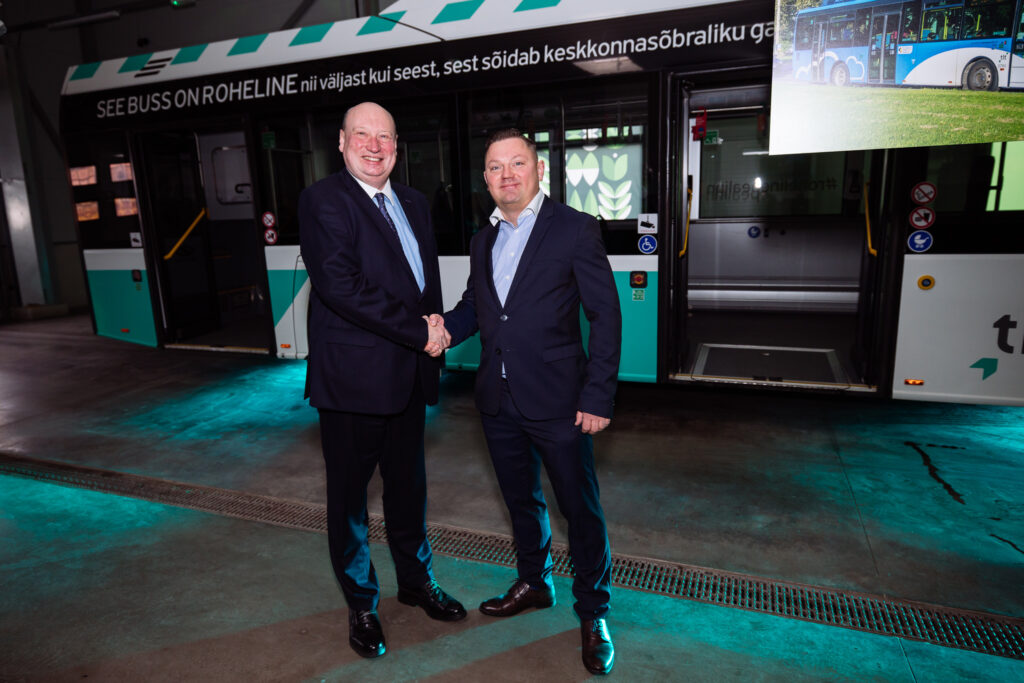Hololei: Cities are the best laboratories to test sustainable mobility solutions

Henrik Hololei, Director-General of the European Commission’s Directorate-General for Mobility and Transport, who made the opening presentation at the Baltic Sea States Public Transport Vision Conference “Public Transport in 2035” in Tallinn, emphasized that all European cities should seize the opportunity to lead sustainable and smart mobility at a time when change is rapid, and innovation poses new challenges to everyday habits. The question is how to work together to make the European transport system sustainable, intelligent, and resilient.
“Transport and mobility are drivers of our economic and social lives and play a vital role in policy-making. As the world around us is constantly changing and new ways of doing business, solutions and new technologies are being introduced at a pace, we have never seen before in society’s history. Europe has almost a year ago adopted a common vision to ensure that our transport system develops into sustainable, intelligent, and durable,” said Hololei.
He stated that although mobility offers many benefits to users, it still has a negative cost for the society that needs to be changed.
“Negative effects continue to include greenhouse gas emissions, deteriorating air quality, and water pollution. At the same time, also congestion, accidents, and noise pollution,” said Hololei, adding that transport now accounts for more than a quarter of the EU’s greenhouse gas emissions and that, unlike other sectors, emissions from the transport sector have increased in recent years; therefore, a reliable path is needed to reduce the environmental impact of transport and to achieve Europe’s goal of being the world’s first climate-neutral region by 2050.
Hololei emphasized that in order to achieve a sustainable transition, all modes of transport must be made more sustainable, alternatives must be made more widely available in the transport system, and to this end, it is necessary to support the transition to new systems.
“The European Commission has set itself the mission to help countries meet today’s biggest challenges and help 100 European cities become climate-neutral by 2030. The mission shows that a smart transition to pollution-free urban traffic is necessary but also possible,” said Hololei.
He emphasized that in order to achieve this goal, it is necessary to increase and improve the share of public transport, ensure safer mobility, but also that comprehensive urban planning and the sharing of more resources are needed.
“In order to develop a sustainable urban mobility environment, there is a need for wider cooperation between all levels of government, the private sector, and target groups. If it succeeds, we will make our cities stronger and more livable in the next decade,” Hololei emphasized.
Deniss Boroditš, Chairman of the Management Board of AS Tallinna Linnatransport, added in his speech that Tallinn, which aims to be the capital of zero-emission public transport by 2035 at the latest, has already started cross-sectoral cooperation to meet the city’s, Estonian and European climate goals.
“Today, the biggest obstacle is the comprehensive nationwide development of infrastructure and the fact that we do not have enough sustainable and environmentally friendly fuels available. At the same time, we see that both the private and public sectors are ready to cooperate in order to develop a sustainable and lasting transport system that would contribute to both the social and economic development of the city,” said Boroditš.
He added that the development of national transition measures as well as the use of European support measures is needed for the use of innovation and the full deployment of new technologies.
“Infrastructure companies, fuel producers, and consumers are prone to the introduction of new solutions, but so far, there has been a lack of additional support that would ensure consistent legislative and financial support for investments,” said the Chairman of the Board of Tallinna Linnatransport.
The public transport, infrastructure, and energy companies of the Baltic Sea States participating in the conference stated that although the goals are ambitious, the zero-emission transport system will be achievable by 2035.

